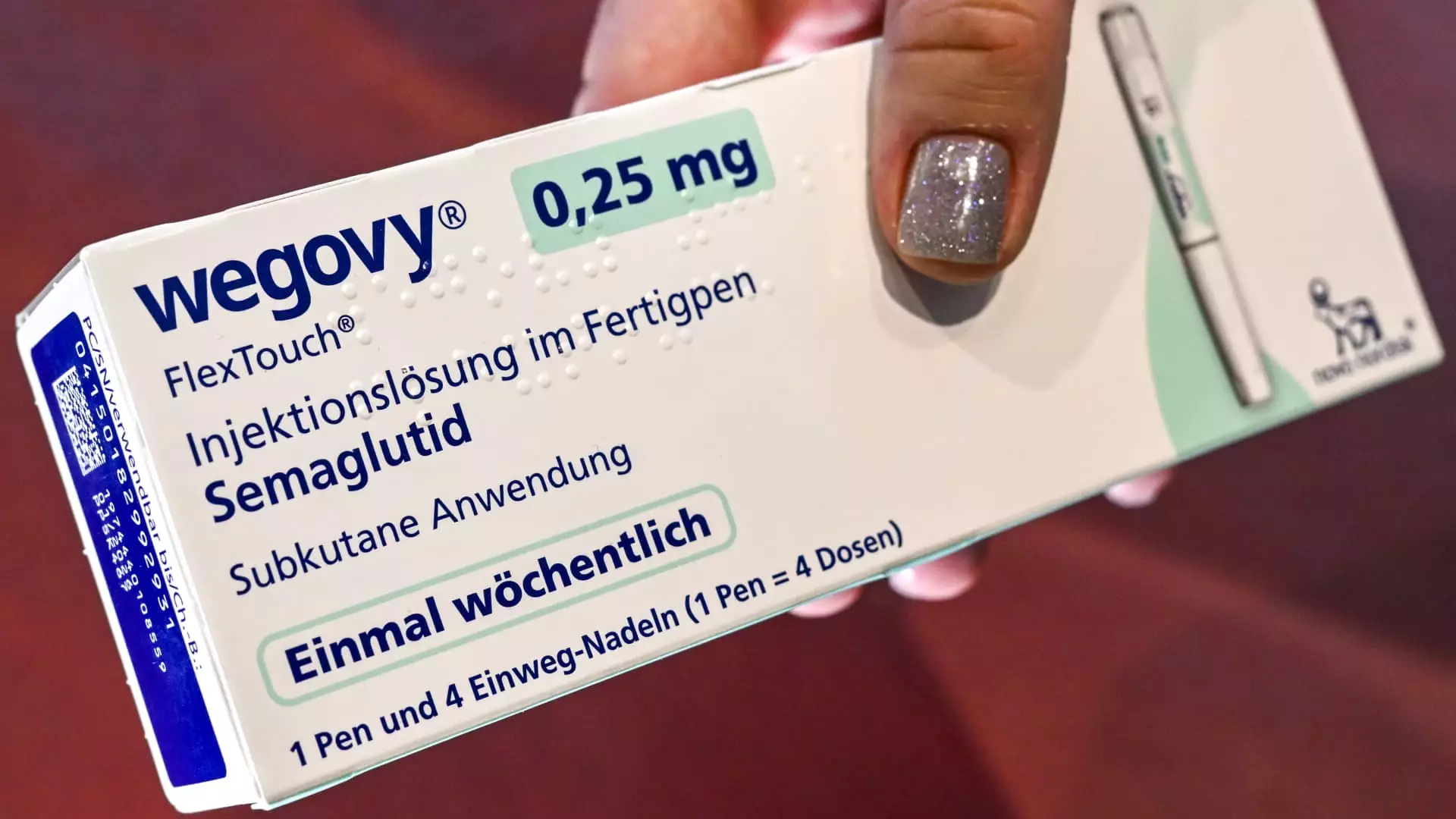7 Uncomfortable Truths About Novo Nordisk’s Wegovy Telehealth Expansion

The landscape of weight loss medications in the United States is a battleground, and Novo Nordisk’s recent decision to partner with telehealth providers for its acclaimed drug, Wegovy, epitomizes the fierce competition for market share in a sector driven by skyrocketing demand. With Wegovy no longer in short supply, the Danish pharmaceutical giant is making a calculated move to leverage telehealth as a conduit for greater patient access. This transition not only reflects the rising importance of pharmaceutical companies adapting to digital health landscapes, but also raises critical questions: Is expanding access genuinely about patient care, or is it mostly about profit margins?
As Novo Nordisk’s stock saw a modest increase of 3% following this announcement, one can’t ignore the significant 18% surge in Hims & Hers shares. This speaks volumes not only about the market’s confidence in the prospects of telehealth but also about how intertwined the fates of pharmaceutical giants and telehealth startups have become. Profit-driven motives can easily overshadow the more commendable intentions of facilitating care, leading one to question whether this is a noble shift towards accessibility or merely a strategic financial maneuver.
The Drug Pricing Dilemma
At the heart of the new partnerships is a pricing structure that can only be described as controversial. Wegovy will be accessible through Novo Nordisk’s direct-to-consumer online pharmacy for a hefty $499, substantially lower than its list price, yet still a staggering sum for individuals without insurance. Meanwhile, Hims & Hers will charge $599, ostensibly offering ongoing clinical support in addition to the medication. This raises some disconcerting questions about the ethics of pharmaceutical pricing in an era when healthcare is increasingly treated as a commodity.
The notion of an effective weight loss drug should ideally tie directly to the wellbeing of patients, yet what’s evident here is a disconnect between the provided care and its financial implications. People struggling with obesity and related health conditions often find themselves in a precarious situation—caught between wanting to regain control over their health and being financially suffocated by the very treatments available to them. It is difficult not to view these inflated costs as a reflection of a system that prioritizes profit over patient wellness.
The Dual Edge of Telehealth Collaboration
Novo Nordisk sheds light on the convenience brought forth by collaborating with telehealth services. This partnership promises a “seamless” patient experience, offering the delivery of Wegovy from the comfort of home. One cannot ignore, however, the ethical complexities arising from this industry shift. While the implied convenience suggests patients are receiving improved care options, the commercialization of these digital platforms raises significant questions about the integrity of patient relationships with healthcare providers.
In an age where digital medical consultations make it easier than ever to acquire prescriptions, there exists a risk that the focus may drift away from comprehensive patient assessments to merely streamlining sales. Healthcare is profoundly personal, and the decision to engage in treatment for conditions like obesity should never merely be a transaction. Yet, as we increasingly lean on technology, are we sacrificing some critical aspects of traditional medical practice in the name of efficiency?
The Impact on Compounding Pharmacies
One of the latent actors in this evolving drama are compounding pharmacies, which had flourished during the Wegovy shortage. The legal restrictions now imposed on them to produce unapproved versions of the drug prompt a necessary conversation on the efficacy of medical regulations versus patient needs. Compounding pharmacies have historically served the nuanced demands of patients, often prescribing tailored medicines that standard pharmaceuticals cannot fulfill.
As larger compounding operations face tight deadlines to cease production of alternative semaglutide versions, the real-world consequences of these actions could create an unequal playing field. Are we prioritizing the interests of big pharmaceutical companies at the expense of patients who may benefit from more personalized approaches? This situation exacerbates an already fragile ecosystem of healthcare that requires balance, where both big Pharma and smaller compounding entities play pivotal roles in comprehensive patient care.
The Complicated Role of Regulations
Regulatory constraints surrounding compounded medications have been thrust into the spotlight, raising philosophical queries about drug accessibility and the role of government in healthcare. Yes, the FDA mandates control to ensure safety and efficacy; yet, should this come at the expense of limiting more personalized treatment options? It is hard to ignore that while these regulations aim for patient safety, they can simultaneously restrict access for those who need it most.
The juxtaposition of regulations against telehealth innovations embodies a broader tension within our healthcare system: advancing technology must meet ethical considerations. How do we craft a healthcare landscape where both cutting-edge solutions and fundamental patient care principles coexist? In the case of Wegovy and its transition to telehealth, the answer seems far from straightforward.
By navigating this intricate intersection of healthcare, profitability, and regulation, we find that the expansion of Wegovy via telehealth presents a vast array of modern quandaries that reflect broader issues surrounding healthcare in the 21st century. The road ahead beckons a sincere commitment to ensuring that patient welfare does not get eclipsed by capitalistic endeavors.





